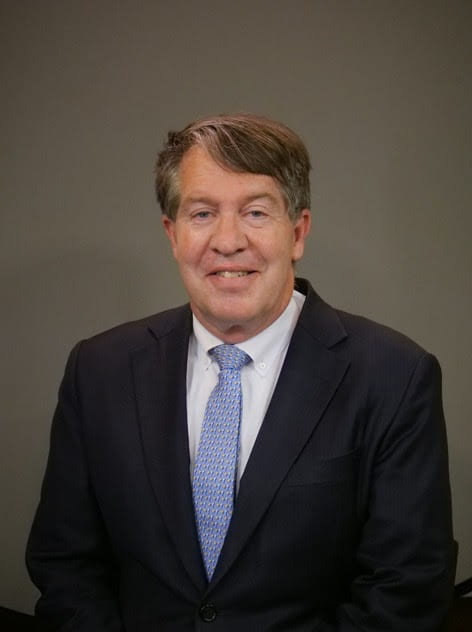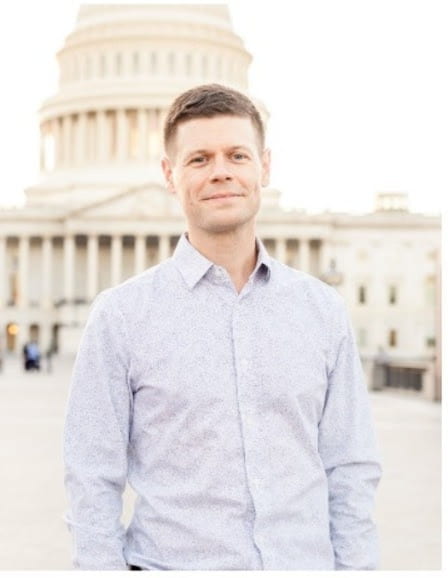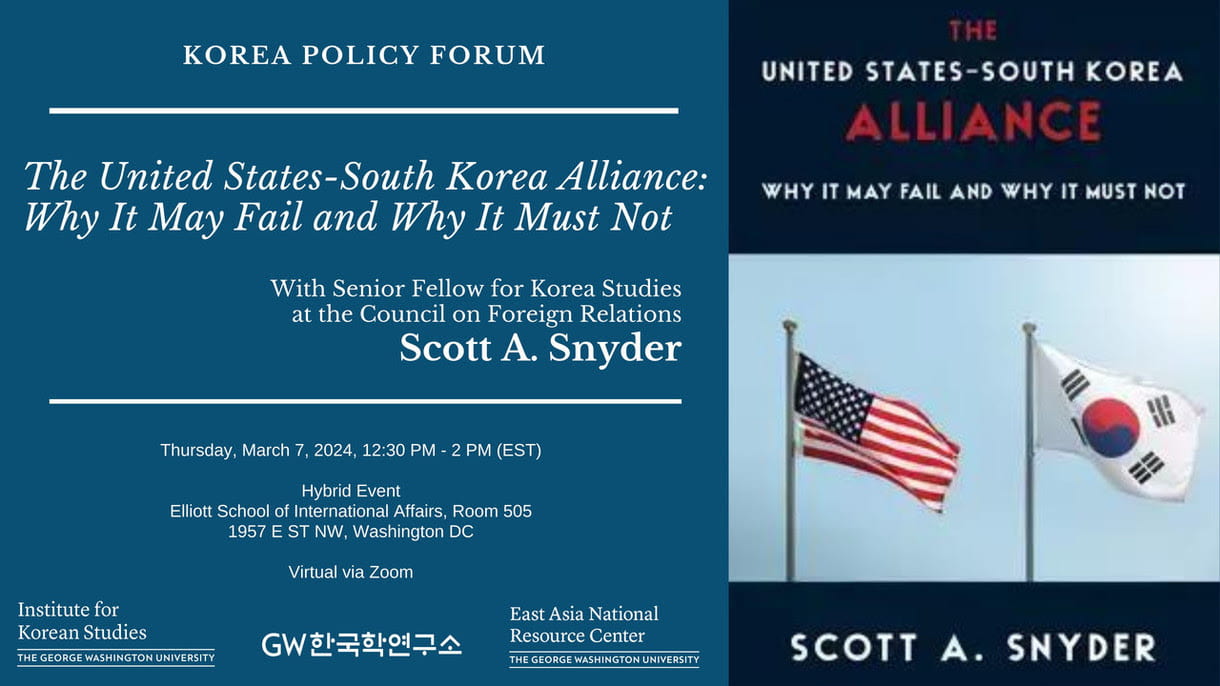Korea Policy Forum
The United States-South Korea Alliance: Why It May Fail and Why It Must Not
Thursday, March 7, 2024
12:30 PM – 02:00 PM EST
Hybrid Event
Elliott School of International Affairs, George Washington University (Room 505)
1957 E Street Northwest Room 505 Washington, DC 20052
Virtual via Zoom
The alliance between the United States and South Korea has endured through seven decades of shifting regional and geopolitical security contexts. Yet it now faces challenges from within. Domestic political turmoil, including deepening political polarization and rising nationalism in both countries, has cast doubt on the alliance’s viability―with critical implications for the balance of power in East Asia.
Scott A. Snyder provides an authoritative overview of the internal and external pressures on the U.S.–South Korea alliance and explores its future prospects. He argues that nationalist leaders’ accession to power could put past successes at risk and endanger the national security objective of both countries. In the United States, “America first” nationalism favors self-interest over cooperation and portrays allies as burdens or even free riders. “Korea first” sentiments, in both progressive and conservative forms, present the U.S. military presence in South Korea as an obstacle to Korean reconciliation or a shackle on South Korea’s freedom of action. Snyder also examines North Korea’s attempts to influence South Korean domestic politics and how China’s growing strength has affected the dynamics of the alliance. He considers scenarios in which the U.S.–South Korea relationship weakens or crumbles, emphasizing the consequences for the region and the world. Drawing on this analysis, Snyder offers timely recommendations for stakeholders in both countries on how to preserve and strengthen the alliance. The GW Institute for Korean Studies and East Asia National Resource Center invite you to join us for this special lecture which will highlight newly-unfolding opportunities and challenges related to a new chapter of the U.S.-ROK alliance.
Speakers

SCOTT A. SNYDER is senior fellow for Korea studies and director of the program on U.S.-Korea policy at the Council on Foreign Relations. Starting on April 1, Mr. Snyder will assume the role of president and chief executive officer at the Korea Economic Institute of America. Mr. Snyder is the author of The United States-South Korea Alliance: Why It May Fail and Why It Must Not (December 2023) and South Korea at the Crossroads: Autonomy and Alliance in an Era of Rival Powers (January 2018). Mr. Snyder received a BA from Rice University and an MA from the regional studies East Asia program at Harvard University.
Discussant

NICHOLAS ANDERSON is Assistant Professor of International Affairs and Associate Director of the Master of Arts International Affairs Program in the Elliott School of International Affairs. His research and teaching interests include great power politics, territorial conflict and expansion, conventional military operations, cybersecurity, and East Asian international relations. He previously held fellowships at the Institute for Security and Conflict Studies at the Elliott School, the Belfer Center for Science and International Affairs at the Harvard Kennedy School, the MacMillan Center Program on Japanese Politics and Diplomacy at Yale University, and the Social Sciences and Humanities Research Council of Canada. His research and other writings have been published in International Security, International Interactions, Political Science Quarterly, The Washington Quarterly, Strategic Studies Quarterly, the Australian Journal of International Affairs, and International Relations of the Asia-Pacific, among other outlets.
Moderator

CELESTE ARRINGTON is Korea Foundation Associate Professor of Political Science and International Affairs at GW. She specializes in comparative public policy, law and social change, lawyers, and governance, with a regional focus on the Koreas and Japan. She is also interested in Northeast Asian security, North Korean human rights, and transnational activism. Her first book was Accidental Activists: Victim Movements and Governmental Accountability in Japan and South Korea (Cornell, 2016). She has published numerous articles and, with Patricia Goedde, she co-edited Rights Claiming in South Korea (Cambridge, 2021). Her current book project analyzes the legalistic turn in Korean and Japanese governance through paired case studies related to tobacco control and disability rights. She received a PhD from UC Berkeley, an MPhil from the University of Cambridge, and an AB from Princeton University. She is a core faculty of the GW Institute for Korean Studies (GWIKS) and president of the Association of Korean Political Studies. Her recent article“Knowledge production through legal mobilization: Environmental activism against the U.S. military bases in East Asia” with Claudia Kim won the Asian Law and Society Association’s distinguished article award.

